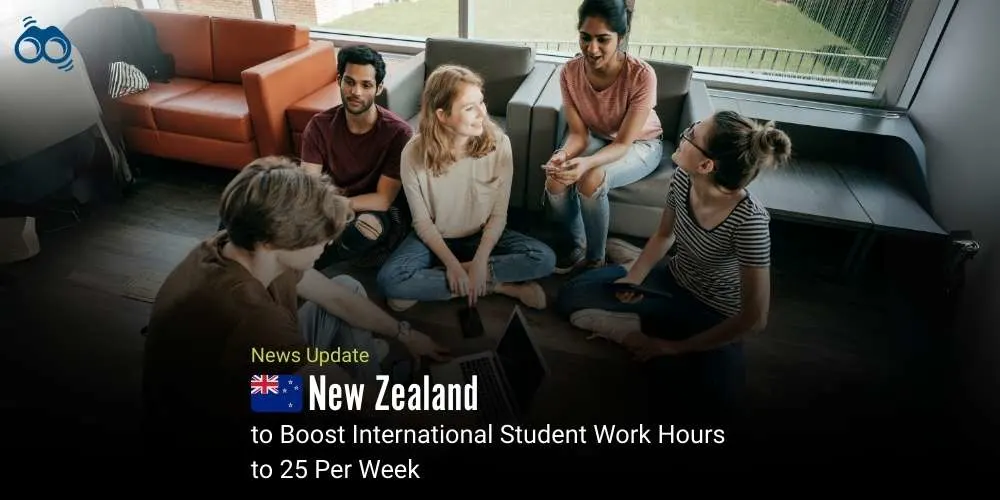International Education Rebounds in New Zealand with Strong Growth in Master’s Enrolments
Policy Shift Boosts Work Opportunities for Student Visa Holders Amid Sector Recovery
New Zealand’s international education sector is demonstrating renewed momentum, with postgraduate enrolments now exceeding pre-pandemic levels and new policy measures poised to enhance the student experience while supporting economic growth. According to Reuters, the number of international students enrolled in master’s programmes has risen sharply, surpassing 2019 figures and signalling a robust recovery in global demand.
From November 2025, eligible international student visa holders will be permitted to work up to 25 hours per week during term time, an increase from the current 20-hour limit. In addition, these expanded in-study work rights will extend to all tertiary students participating in approved exchange or Study Abroad programmes, including those lasting only one semester. This policy change forms part of the New Zealand Government’s International Education Going for Growth Plan, which aims to double the sector’s economic contribution to NZ$7.2 billion by 2034.
Under current immigration guidelines, student visa holders may work up to 20 hours per week during term time and full-time during mid-year and Christmas–New Year breaks. Eligibility includes tertiary, PhD, and master’s students, certain English language learners, and secondary school students in Years 12 and 13 with appropriate consent. Students undertaking practical components of their studies or enrolled in approved programmes—such as foundation, exchange, or English language courses—may also qualify. Authorities have confirmed that doctoral and research master’s students face no restrictions on working hours.
Recent enrolment data further illustrates the sector’s upward trajectory. Education New Zealand reported a 21 per cent increase in international student numbers in 2024 compared with 2023, reaching a total of 83,425, approximately 72 per cent of the 2019 figure of 115,705. Growth was most pronounced at government-funded private training establishments (+59%), followed by primary schools (+53%) and intermediate schools (+32%). Universities accounted for 33,485 enrolments, while schools registered 18,350 international students.
Education New Zealand Chief Executive Amanda Malu highlighted that master’s programme enrolments rose by 68 per cent between 2023 and 2024, increasing from 8,740 to 14,695 students, an 85 per cent rise compared with 2019, when 7,945 students were enrolled at that level. China and India remained the leading source markets, contributing 34 percent and 14 percent of enrolments respectively, followed by Japan (9%), South Korea (4%), Thailand (3%), the United States (3%), Germany (3%), the Philippines (3%), and Sri Lanka (3%). With expanded work rights and strong postgraduate growth, New Zealand is positioning itself as a competitive and student-friendly destination in the global education landscape.
Editor’s Note:
New Zealand’s revised international education strategy is more than a post-pandemic recovery plan. It is a deliberate effort to position the country as a globally competitive and student-focused destination. The decision to expand in-study work rights reflects a practical understanding of the expectations and financial needs of international students. By aligning visa conditions with those of comparable countries, New Zealand is strengthening its appeal and moving towards a more integrated and experience-driven education policy. The inclusion of short-term exchange and Study Abroad participants in the new work entitlements is especially significant, as it signals a commitment to mobility and inclusivity across the tertiary sector. However, policy changes alone will not secure long-term success. The sharp increase in master’s enrolments is encouraging, but the challenge now is to convert this growth into lasting value for students, academically, professionally, and socially. China and India remain the largest source markets, yet diversification will be important to ensure resilience.
According to Skoobuzz, the success of New Zealand's Going for Growth Plan hinges on its ability to offer not only educational access but also a sense of belonging. In today's competitive global market, a positive student experience is crucial for building a reputation and ensuring retention.














0 Comments (Please Login To Continue)